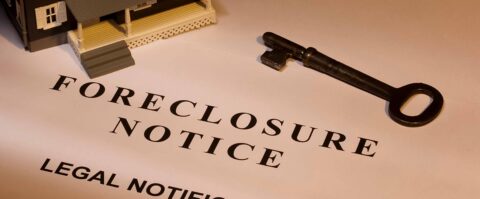
What is the Statute of Limitations For Collecting on Old Second Mortgages, HELOCs, and Lines of Credit in New Jersey?
In New Jersey, the statute of limitations for collecting on second mortgages is generally six years from the due date stated in the mortgage agreement; New Jersey statute N.J.S.A. 12A:3-118(b) states that if there have not been any payments made for more than 10 years and there has been no demand for payment in 6 years, the lender cannot collect from the borrower.
We have heard from several people who had Second Mortgages, HELOCs and Credit Lines, and lost their homes due to the crash between 2007-2010. They contacted our office and said that they have heard nothing about these loans in years, but they are suddenly being sued for the amount of the loan, plus thousands of dollars in interest and fees. These lawsuits may be improper if there have been no payments in more than ten (10) years and no demand for payment in the past six (6) years.
Can the Complaint Be Dismissed?
Any legal action to collect money can have a statute of limitations. If the collection action is started after this time limit has expired, it is illegal, and action should be taken to have the Complaint dismissed and potentially pursue claims against the lender and their representatives.
N.J.S.A. 12A:3-118 addresses the statute of limitations for an action to enforce the obligation of a party to pay a Note. The relevant section of the statute provides:
a. Except as provided in subsection e. of this section, an action to enforce the obligation of a party to pay a note payable at a definite time must be commenced within six years after the due date or dates stated in the note or, if a due date is accelerated, within six years after the accelerated due date.
b. Except as provided in subsection d. or e. of this section, if demand for payment is made to the maker of a note payable on demand, an action to enforce the obligation of a party to pay the note must be commenced within six years after the demand. If no demand for payment is made to the maker, an action to enforce the note is barred if neither principal nor interest on the note has been paid for a continuous period of 10 years.
Can a Lender Contact Me About an Old Debt Past the Statute of Limitations?
Yes, a lender can still contact you to attempt to collect an old debt, but they cannot legally sue you for the debt once the statute of limitations has expired. If you’re contacted about an old debt, it’s important not to make any payments or written acknowledgments until you’ve consulted with a legal professional.
What Should I Do If I’m Sued For a Debt That’s Past the Statute of Limitations?
If you’re sued for a debt that you believe is past the statute of limitations, consult with a legal professional immediately. They can go over your case in detail, discuss all of your possible options, and lead the way to having the complaint dismissed, if possible.
Are You Facing a Lawsuit that seeks to Collect on Old Second Mortgages, HELOCs and Lines of Credit in New Jersey?
If you are being sued by a lender trying to collect money from an old Second Mortgage, HELOC or Credit Line, and you have not made a payment in more than ten (10) years, it may be possible to have the Complaint dismissed and force the lender to pay damages and costs. At the law firm of Ira J. Metrick, we can help you determine if a statute of limitation defense is likely to succeed in Court. Contact us today for a free consultation to discuss your case.



